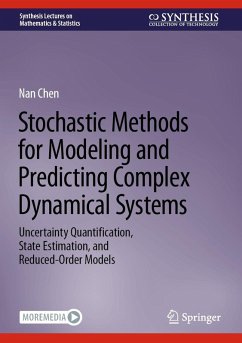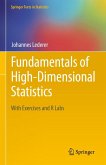This book enables readers to understand, model, and predict complex dynamical systems using new methods with stochastic tools. The author presents a unique combination of qualitative and quantitative modeling skills, novel efficient computational methods, rigorous mathematical theory, as well as physical intuitions and thinking. An emphasis is placed on the balance between computational efficiency and modeling accuracy, providing readers with ideas to build useful models in practice. Successful modeling of complex systems requires a comprehensive use of qualitative and quantitative modeling approaches, novel efficient computational methods, physical intuitions and thinking, as well as rigorous mathematical theories. As such, mathematical tools for understanding, modeling, and predicting complex dynamical systems using various suitable stochastic tools are presented. Both theoretical and numerical approaches are included, allowing readers to choose suitable methods in different practical situations. The author provides practical examples and motivations when introducing various mathematical and stochastic tools and merges mathematics, statistics, information theory, computational science, and data science. In addition, the author discusses how to choose and apply suitable mathematical tools to several disciplines including pure and applied mathematics, physics, engineering, neural science, material science, climate and atmosphere, ocean science, and many others. Readers will not only learn detailed techniques for stochastic modeling and prediction, but will develop their intuition as well. Important topics in modeling and prediction including extreme events, high-dimensional systems, and multiscale features are discussed. In addition, this book:
- Combines qualitative and quantitative modeling and efficient computational methods;
- Presents topics from nonlinear dynamics, stochastic modeling, numerical algorithms, and real applications;
- Includes MATLAB® codes for the provided examples to help readers better understand and apply the concepts.
Dieser Download kann aus rechtlichen Gründen nur mit Rechnungsadresse in A, B, BG, CY, CZ, D, DK, EW, E, FIN, F, GR, HR, H, IRL, I, LT, L, LR, M, NL, PL, P, R, S, SLO, SK ausgeliefert werden.









